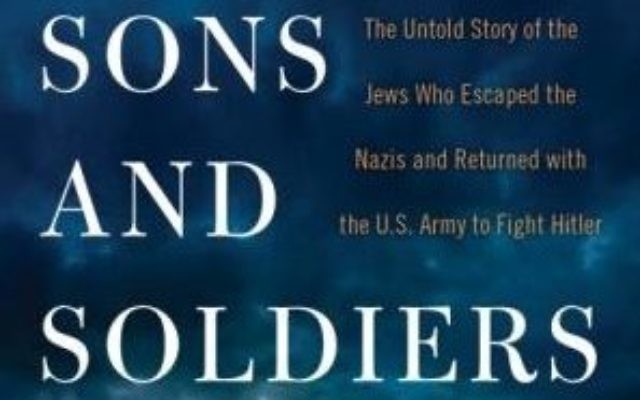6 Jewish Soldiers Who Haunted the Nazis
History proves Jews have been audacious fighters when protecting their families, communities and country.
Some people believe that Jews are not brave fighters for their countries, communities or families. Those people have a poor understanding of history.
As Jews, we are encouraged to avoid conflict to resolve issues. But when our values, families, communities and lives have been at risk, from ancient times to today, Jews have been audacious fighters.
Think of the Maccabees, Masada and the escape from Sobibor.
During World War II, the Jews of Europe rarely had the means to fight their evil enemy. But even with the most modest of weapons, as during the Warsaw Ghetto Uprising, they inflicted heavy losses while battling the Germans for a prolonged period.
Bruce Henderson’s “Sons and Soldiers: The Untold Story of the Jews Who Escaped the Nazis and Returned With the U.S. Army to Fight Hitler” tells the stories of six brave young men whose circumstances enabled them to deal a significant blow to the Nazis.
All were born in Germany in the 1920s and managed to immigrate to the United States before America was dragged into the war in December 1941. When Germany declared war on the United States, they were eager to join the U.S. Army and help destroy Hitler.
By mid-1942, the Army realized that such mean could be valuable in monitoring German communications and interrogating German POWs. The Army established a secret school at Camp Ritchie in western Maryland to train these men.
About 2,000 Jews went through the rigorous training, learning the German army’s structure, the habits of German officers, and techniques for befriending and interviewing POWs. They were also expected to serve as combat troops. About 40 percent washed out during the training.
These German-born Jewish soldiers were commonly referred to as the Ritchie Boys. They were told not to discuss their wartime activities, and their operation remained a secret until 2012.
The first describes prewar life in Germany, then in the United States for the six men.
The second, the bulk of the book, covers the Ritchie Boys’ training, their ocean voyage to the war zone, and such major engagements as D-Day, Operation Market Garden and the Battle of the Bulge.
The last section addresses the final days of the war, the exposure of the death camps and some soldiers’ realization that the Nazis had slaughtered their families and friends. Each of the six visited his hometown and tried to identify his home amid bombed-out rubble.
The overwhelming feeling for the men was sadness — that their loved ones were dead, that the wonderful country of their birth had been hijacked and destroyed by the Nazis, that the war had been unnecessary.
They also felt great pride in having helped to take down Hitler.
The book has great historical accuracy and provides a view of how these Jewish soldiers were an important part of the Army.
Among the poignant moments Henderson describes:
- The Army concluded that 60 percent of the credible intelligence generated in the European theater came from the Ritchie Boys’ efforts.
- Captured Ritchie Boys faced certain death, so they often hid their Jewishness. Two who were interrogating POWs were themselves taken prisoner when their unit was overrun during the Battle of the Bulge. Their former POWs revealed the identities of the Ritchie Boys, who were immediately executed. The officer who ordered the executions was hanged for war crimes after the war.
- U.S. military police several times challenged Ritchie Boys, who wore American uniforms but had thick German accents and often didn’t know the pop-culture challenge questions asked by guards, such as “Who won the 1940 World Series?”
- One Ritchie Boy was assigned to the 82nd Airborne a week before D-Day. Despite lacking parachute training, he refused the option of skipping the operation, and his first airplane ride ended in a combat jump behind enemy lines June 6, 1944.
- The Ritchie Boys treated their German prisoners fairly instead of taking revenge on them. They also knew how it felt to be held against their will.
- The Soviet army unleashed brutality on German prisoners as vengeance, so sometimes when POWs refused to talk, two Ritchie Boys would play “good cop, bad cop.” The bad cop would dress as a Soviet army officer, and the German would be warned of his impending transfer to the Russians.
- The Ritchie Boys found that the same Nazis who practiced stunning inhumanity at the camps turned into cowards when their own lives were at risk.
I love this book and find the life stories of the six featured heroes to be fascinating. Henderson carries readers to major battles and shows the highs and lows of these American patriots. They did us proud, and I am glad their story of courage and sacrifice is being told.





comments